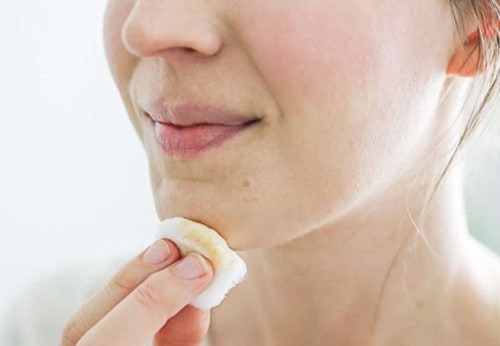If you’re wondering what causes chin acne, it’s simple. It all has to do with the way our body’s oil glands and sebaceous glands work. For most people, the only cause of chin acne is that their hormones aren’t in balance. And because everyone has different hormonal balances and imbalances around the clock, everyone’s body chemistry changes to some extent.
One of the biggest, most common contributor to chin acne, though, are the hormones. This is especially true if you’re a woman – that is, if you’re a woman with a high levels of estrogen. What causes this? Well, this is actually a complex answer, but basically, your estrogen levels change depending on your hormonal fluctuations. Why is that?
Basically, the female hormones present in women, estrogen, can trigger the sebaceous glands to over-compensate by producing excessive sebum or oil. As an added bonus, the excess sebum or oil in the skin can clog the pore, creating a perfect environment for the bacteria-filled virus.
Chin acne can be a result of these imbalances or hormonal fluctuations, whether they’re severe or mild. To learn how to treat your chin pimples and blemishes, here are some of the main causes of chin acne – and how to treat them.
One big contributor to chin pimples is hormonal fluctuations. This can be one of the major causes of chin pimples – and one of the primary reasons why many people don’t know what causes it. If you’re wondering what causes chin pimples, the answer is simple: hormonal imbalances. If your hormones are out of balance – particularly estrogen, or other hormones found in women – you’ll need to find a way to balance them out – or at least get your hormone levels back into the right range.

Another common reason that women develop chin pimples is because they’re suffering from too much stress in their life. Stress is something that we all deal with in our lives, regardless of gender. In fact, stress can affect just about every part of our body. – including the skin, our internal organs, and even our hormones. Stress can damage our immune system, which is why it’s always important to have a strong immune system.
For women, stress can be especially damaging when it comes to our hormones – because the hormones that control our stress response are also responsible for regulating our hormonal levels and activity levels. When our levels of stress hormones are out of whack, our skin can start to break out in pimple-like bumps, redness, and zits.
Stress is also known to increase our risk of depression, so it’s really important that we find ways to reduce our exposure to stress in our lives. And that’s not all – reducing our exposure to stress will also help keep our levels of estrogen in line. So one of the best ways to lower your risk of getting chin pimples is to find ways to reduce your level of stress in your life.
So now that you know what causes chin pimples – you probably want to know how to stop them from happening. There are a few things that you can do to help with this, as well. First, it’s important that you avoid touching your face – especially your chin – with your hands.
One of the biggest contributors to chin pimples is that your hands are extremely dirty. And if you don’t wash your hands often enough – or make sure they’re clean enough, then you may end up with a clogged pores on your chin, which will cause acne to grow on your chin. That’s because dirt gets trapped in your pores and makes the pores become infected. And the bacteria from the bacteria in the dirt feeds on the dead skin cells and oils. If your hands are dirty, you’re more likely to get acne. arti nama
Also, to help prevent acne on your chin, avoid using harsh soaps or detergents. The chemicals in the soap or detergent can clog your pores, creating an environment where acne can thrive.
You should also be keeping a close eye on your diet. Many experts agree that there are certain foods that will help prevent pimples on the chin, so it’s important to make sure to include those foods in your daily meals.

